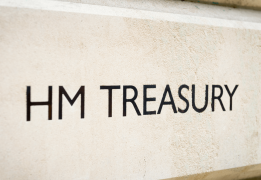Archived article
Please note that tax, investment, pension and ISA rules can change and the information and any views contained in this article may now be inaccurate.

As the UK begins to emerge slowly (and in a few cases boozily) from lockdown, focus now turns to plugging the eye-popping £300 billion hole left in the UK’s finances by COVID-19.
The Chancellor will have to weigh-up his desire to kick-start the economy after its three-month slumber with the need to raise extra revenue via the tax system. A strong recovery should boost tax receipts and lower the amount spent on benefits, automatically improving the Government’s balance sheet.
Given we are now effectively getting two Budgets in 2020, the Chancellor may decide to frontload the ‘good news’ items on Wednesday as he attempts to kickstart the economy – and save the tax nasties for his Autumn Budget.
What economy boosting and tax-saving policies could the Chancellor have in store?
VAT and stamp duty cuts
Reports over the weekend suggest the Chancellor could place getting Brits spending their cash in the shops and boosting the housing market front-and-centre of his summer statement on Wednesday.
Cuts to VAT rates are perhaps the most straightforward way to increase demand and would provide a much-needed lifeline to the UK high street. Among the key questions here are whether any reduction in VAT will be temporary or permanent and which industries it will benefit.
While a stamp duty reduction in the form of increasing the purchase value at which it kicks in - potentially to £500,000 - would clearly help stimulate the housing market, suggestions the move could be signalled on Wednesday but not enacted until the Autumn Budget are difficult to square off.
Any move in this direction would likely dampen rather than stimulate demand in the short-term, as buyers would inevitably delay property purchases until the stamp duty cut actually kicked in.
State pension triple-lock axed?
The Government’s manifesto commitment to increase the state pension in line with the so-called ‘triple-lock’ – which guarantees annual increases in line with the highest of average earnings, CPI inflation or 2.5% - looks in an increasingly perilous position. OBR forecasts published in April suggest average earnings could fall by 7.3% in 2020 as a result of lockdown before rebounding by 18.3% in 2021 if the economy bounces back. Inflation, meanwhile, is expected to remain fairly stable at 1.2% this year and 2.3% next year.
This scenario would have severe implications for the cost of the triple-lock as it would force through a 21.3% increase in the value of the state pension over the next two years, raising the flat-rate state pension amount from £175.20 a week to £212.45 a week. This would likely cost the Government in excess of £10 billion – an extra cost it certainly hadn’t budgeted for.
Independent research commissioned by AJ Bell* found almost a third (30%) of UK adults believe breaking the triple-lock manifesto pledge would be ‘unacceptable’, with people over 55 twice as likely to deem breaching the commitment unacceptable compared to those aged 18-34.
The Government has two options open to it here: carry on with the state pension triple-lock and create a colossal chasm in the public finances, or revisit the policy and risk the wrath of millions of pensioners.
COVID tax?
Just under a quarter (23%) of UK adults felt the Government breaking its manifesto pledge not to increase income tax rates would be unacceptable. Previous research AJ Bell has conducted suggests on average UK adults would accept a 4 percentage point rise in income tax rates to pay for COVID-19*.
One option could be to create a new ‘COVID tax’ designed to achieve the same aim. However, the Government will need to weigh up the need to raise revenues with the impact extra taxes could have on people’s willingness to spend in the shops.
National Insurance on pension incomes?
A similar proportion (26%) said breaking the manifesto commitment not to raise National Insurance rates would be unacceptable*.
While National Insurance is likely viewed by most people as income tax in all but name, one revenue-raising option open to policymakers would be to levy National Insurance on retirement incomes, which currently enjoy an exemption.
This would clearly bring in some much-needed cash, although again there will be a difficult trade-off between boosting the coffers of the Exchequer and risking taxing off the UK’s economic recovery.
It would also seriously risk alienating older voters, who remain arguably the key demographic when it comes to winning power at the ballot box.
*Source: Research conducted by AJ Bell and Opinium between 22/05/20 – 26/05/20 with 2,001 respondents
These articles are for information purposes only and are not a personal recommendation or advice.
Related content
- Wed, 01/05/2024 - 18:37
- Tue, 23/04/2024 - 16:41
- Wed, 17/04/2024 - 13:32
- Thu, 11/04/2024 - 15:20
- Thu, 11/04/2024 - 14:34

